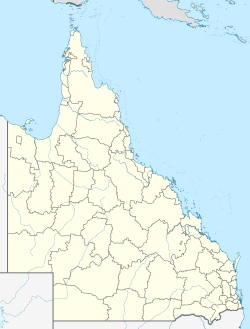History
The locality was officially named and bounded by government on 16 October 1998, [2] although the locality name has been used since the earliest days of settlement.
A hall was built at Stalworth which hosted dances and social events for many years. It opened on Saturday 21 September 1929 [5] and was later extended with significant alternations and improvements which were opened on Saturday 3 March 1934. [6] [7] Church services and activities were also held in the hall regularly. [8] [9] A Stalworth branch society within the Christian Endeavour movement met in the hall and they hosted the Weinholt Christian Endeavour Union rally there in 1937. [10]
Other social activities in the district included the formation of a Stalworth local soccer team. [11]
There was also a cheese factory at Stalworth for a short time. Newspaper articles from 1925 report that it was destroyed by fire on 30 December 1924 along with the adjoining residence, [12] and the circumstances were regarded as suspicious with the possibility of insurance fraud. [13] It was insured for £1100 [13] and was owned at the time by E.V.Hobbs who did not reside there but engaged a caretaker. [14] The caretaker was James Wardill. [15] A local farmer giving evidence at the subsequent inquiry held in Wondai Court House [15] testified that the factory had by then been in disuse for many years, [16] however the owner testified that his son-in-law had operated the cheese plant for a short time between approximately 1919 and 1922 generating turnover to the value of £6000. [14] An advertisement was placed in the Maryborough Chronicle, Wide Bay and Burnett Advertiser newspaper on 6 June 1917 calling for tenders to construct the Stalworth cheese factory by its proprietor E.T.Howes of Memerambi. [17]
One of the first settlers in the district was Sydney Shaw, who subsequently became the first teacher at nearby Abbeywood State School. [18]
Communication services were established relatively early. Telephone was first made available at Stalworth on 25 March 1926. [19] Further, the district is mentioned in the Commonwealth of Australia Gazette 23 June 1932 when the Postmaster General was calling for tenders for mail delivery in the area - "Proston and Proston, via Block 10, Stalworth Post Office, Slingers and Jingeri letter-box, twice a week. Tenderers to state additional price required for three trips a week." [20]
This page is based on this
Wikipedia article Text is available under the
CC BY-SA 4.0 license; additional terms may apply.
Images, videos and audio are available under their respective licenses.
